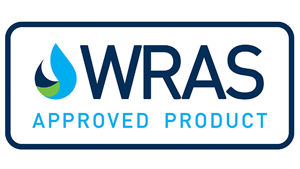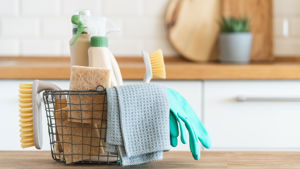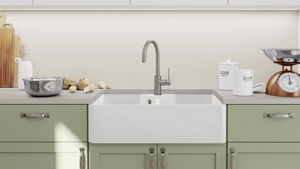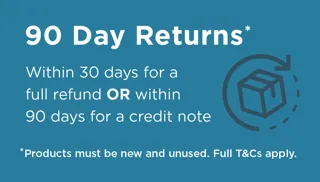The Water Regulations Advisory Scheme (WRAS) is a conformance mark that demonstrates that an item complies with the high standards set out by the UK’s water regulations and by-laws. Any product the displays the “WRAS approved” logo has undergone significant testing by an independent laboratory and representatives of the water suppliers to ensure that it will not contribute to the contamination of public water supplies. WRAS approval is granted directly by representatives of the UK’s water suppliers and is therefore recognised and accepted by every water supplier in the UK.
Is WRAS Approval Compulsory?
Unfortunately there is no straightforward “yes” or “no” answer. The WRAS approval scheme itself is voluntary. Manufacturers are under no obligation to have their products WRAS approved, and homeowners are (in general) under no obligation to have WRAS approved products in their homes. But this is where it gets tricky. A homeowner that is simply looking to replace existing items in their home does not require WRAS approved products. Even if you are building an extension to your property and putting in a brand new bathroom, as long as there is already a mains cold water supply to the property, new taps, showers and cisterns will not need to be WRAS approved.
There are certain situations when WRAS approval is compulsory, however. If you are building a brand new house, you must ensure that you use WRAS approved products. The water company will not hook up your mains cold supply unless you can prove that you’ve used WRAS approved products.
Where it gets even trickier, is if you are upgrading a building that is to be used by the public; a hotel or a leisure centre, for example, must use WRAS approved products even if there is an existing water supply. Again, the water board will refuse to connect to the mains water supply unless you can prove that you’ve used WRAS approved products. It does happen, so be warned!
Where do the Regulations Apply?
The water regulations apply to all premises that receive a public water supply, and whilst it’s not illegal to buy, sell or install a product that isn’t WRAS approved, it is illegal to install it in ways that contravene the water regulations and by-laws. Therefore, the easiest way to ensure full compliance with these regulations is to buy a WRAS approved product. Please be aware though that just because a product has the relevant approval, it still needs to be installed in compliance of the regulations to meet its full WRAS approval. This is why we always recommend that you use a qualified plumber for an installation that requires connection to a water supply.
What Products Can be WRAS Approved?
Any product that is connected to a water supply can be WRAS approved. You’ll find WRAS approval on a large variety of products here at Tap Warehouse - just keep an eye out for the WRAS approved logo in the product description. Our WRAS approved range includes kitchen taps, bathroom taps, showers, shower valves and toilet cisterns, but it’s not just whole products, however, that undergo the stringent WRAS testing. Non-metallic materials and components such as rubber washers can also be tested to show that they also will not contaminate the water and fall foul of the water regulations.
Is It Worth Buying WRAS Approved Products Then?
As previously mentioned, manufacturers do not have to get their products WRAS approved; it is a completely voluntary decision. The WRAS approval process is both costly and lengthy, and manufacturers have to get each product re-approved every 5 years. Whilst WRAS approval isn’t the be-all and end-all, the stringent testing and the fact that a manufacturer has gone through the process of getting their product WRAS approved can be taken as a sign of a product’s quality.
However, just because a product isn’t WRAS approved, it doesn’t mean that it’s not of just a high a standard. The process is costly and lengthy, and any change to the design means that the process needs to start all over again, so some manufacturers forgo the process altogether. If a whole product is tested, WRAS approval is only granted for the whole product, so even if the parts of the product are available individually, only the whole product will carry the WRAS approval. As an example, if you were to buy a WRAS approved 3 hole bath filler that comprises two on/off valves and a bath spout, it is only the product as a whole that would carry the approval. Unless the manufacturer had then applied for approval for the individual components as well, they would not be considered WRAS approved if bought individually, even though when bought as a pack they are. It can be quite a minefield.
So, there we have it, a brief (but important) look at the WRAS approval scheme. We hope that you've learnt a bit more about the WRAS accreditation, but for more information, please visit the WRAS website or contact our customer service team who will be happy to answer any questions you may have.








